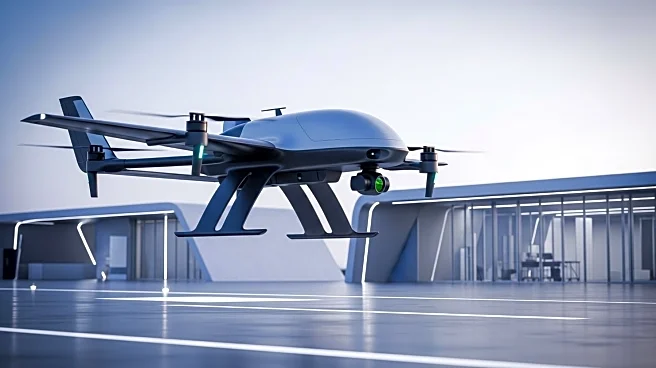What's Happening?
At the DSEI UK defense show, BAE Systems and Lockheed Martin unveiled plans to develop uncrewed autonomous air systems aimed at enhancing electronic warfare capabilities. The systems are designed to be cost-effective, versatile, and easy to deploy, with options for air-drop or launch from various platforms. This initiative reflects a broader industry trend of creating adaptable systems that can be quickly modified to maintain relevance in rapidly changing combat scenarios. The collaboration emphasizes modularity and adaptability, allowing for integration of different payloads and capabilities.
Why It's Important?
The announcement is crucial as it addresses the need for advanced electronic warfare capabilities in modern military operations. By focusing on modularity and adaptability, BAE Systems and Lockheed Martin aim to provide armed forces with tools that can be rapidly deployed and updated, enhancing their ability to operate in complex electronic warfare environments. This collaboration could lead to advancements in military technology, potentially benefiting defense strategies and operations globally. The partnership also highlights the importance of international cooperation in defense technology development.
What's Next?
As the partnership progresses, BAE Systems and Lockheed Martin plan to unveil specific applications for their autonomous air systems. Cost considerations will play a crucial role in the design process, ensuring the systems are affordable and effective. The companies are adopting an open systems approach, focusing on integration capabilities and modular architecture to enable ongoing updates. This framework will ensure the systems remain contemporary and effective over time. The collaboration is expected to complement the capabilities offered by MBDA, where BAE Systems holds a significant stake.









